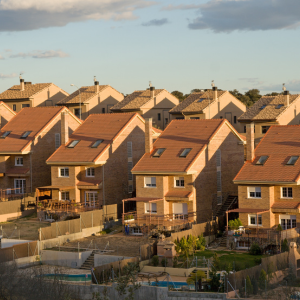
Introduction to Homeowners Association (HOA) Fees in Oklahoma City
Homeowners Association (HOA) fees in Oklahoma City are a significant aspect of residential community living, influencing the cost and quality of life for many homeowners. These fees are important for preserving common areas, providing essential services, and upholding community standards within neighborhoods.
In Oklahoma City, HOA fees can vary widely depending on the amenities provided, such as swimming pools, clubhouses, landscaping, and security services. Understanding the structure and purpose of these fees is essential for current and prospective homeowners when considering property investments in communities governed by an HOA.
Factors contributing to the rise in HOA fees include inflationary pressures, increased maintenance costs, and enhancements to community facilities. For those living in or moving to Oklahoma City, comprehending how these fees impact overall housing expenses is vital for effective financial planning and ensuring a harmonious living environment within their chosen community.
When it comes time to sell a home in a neighborhood governed by an HOA in Oklahoma City, understanding how these fees affect your property’s marketability is crucial. Potential buyers often factor in monthly HOA dues when considering affordability, so transparent communication about what the fees cover, such as amenities, maintenance, or security, can help position your home more competitively. If you’re navigating this process and unsure how to approach selling with HOA fees involved, Revive Real Estate, LLC in Oklahoma City can help. With expertise in local real estate and HOA communities, they can guide you in marketing your property effectively and managing buyer concerns related to association costs.
Legal Framework Governing HOAs in Oklahoma City
The legal framework governing homeowners associations (HOAs) in Oklahoma City is primarily established by state laws, which dictate the powers and responsibilities of these organizations. Under Oklahoma’s Planned Real Estate Development Act, HOAs are granted significant authority to manage common areas and enforce community rules.
This legal structure allows HOAs to levy assessments on homeowners to cover maintenance costs and other expenses. Additionally, HOAs in Oklahoma City must adhere to the association’s bylaws and covenants, conditions, and restrictions (CC&Rs), which provide detailed guidelines on fee increases and financial management practices.
State legislation also requires transparency in HOA operations, mandating regular financial disclosures to members and ensuring that any changes in fees are justified and communicated effectively. Understanding this legal backdrop is crucial for homeowners as it impacts their rights and obligations within the community association framework.
If you’re planning to sell a home governed by an HOA in Oklahoma City, understanding the legal framework can give you a strategic advantage. HOAs have the power to place liens for unpaid dues, which could complicate a sale if not addressed in advance. To avoid delays and attract serious buyers, it’s essential to ensure that all HOA obligations are current and disclosures are prepared. For a smoother process, consider working with cash home buyers in Oklahoma City and nearby cities who are familiar with navigating HOA requirements and can close quickly, even when association rules add layers of complexity.
Factors Influencing Hoa Fee Increases in Urban Areas
In urban areas like Oklahoma City, various factors contribute to the increase in homeowners association (HOA) fees. One primary driver is the rising cost of maintenance and repairs for community amenities and infrastructure, such as swimming pools, clubhouses, and landscaping.
As neighborhoods age, these facilities often require more frequent upkeep or upgrades, leading to higher expenses. Additionally, inflation impacts the cost of essential services like waste management, security, and utilities—expenses that are typically covered by HOA fees.
Legal requirements and local regulations may also require additional expenditures, particularly if they introduce new compliance measures. Furthermore, increased property insurance premiums due to changing risk assessments can further elevate costs for HOAs in urban settings.
Homeowners in Oklahoma City might also experience fee hikes due to a need for building reserve funds intended to cover unexpected emergencies or future large-scale projects. Lastly, administrative costs associated with managing larger homeowner communities can rise as more residents demand enhanced services or improvements in shared spaces.
Economic Impact of Rising Hoa Fees on Residents
The economic impact of rising HOA fees in Oklahoma City is becoming a significant concern for homeowners, as these fees influence both personal finances and the broader real estate market. As HOA fees increase, residents may find themselves allocating a larger portion of their household budgets to cover these additional costs, which can strain financial resources and limit discretionary spending.
This financial burden can be especially challenging for those on fixed incomes, such as retirees or individuals dependent on social security benefits. Rising HOA fees also have the potential to affect property values; prospective buyers might be deterred by higher monthly obligations, leading to reduced demand for homes within certain communities.
Additionally, increased fees can exacerbate disparities between neighborhoods where some communities maintain lower fee structures due to more efficient management or fewer amenities requiring upkeep. As homeowners grapple with these rising costs, they must consider the long-term implications on their financial stability and community investment.
Comparing Hoa Fees Across Different Neighborhoods
When examining HOA fees across various neighborhoods in Oklahoma City, homeowners will notice significant variation influenced by several factors. In upscale communities such as Nichols Hills and Gaillardia, HOA fees tend to be higher due to the premium amenities offered, including well-maintained golf courses, swimming pools, and gated security.
Conversely, neighborhoods like Edmond or Moore might have more moderate fees reflecting fewer shared facilities or simpler maintenance requirements. It’s crucial for homeowners to consider what services and benefits their dues cover; for instance, some communities allocate funds for landscaping, snow removal, and community events, while others may focus solely on infrastructure maintenance.
Furthermore, the age of a neighborhood can also impact fees—older areas might require more extensive upkeep compared to newly developed zones with modern infrastructure. By understanding these differences in HOA fee structures across Oklahoma City’s neighborhoods, homeowners can make informed decisions about purchasing property that aligns with their financial expectations and lifestyle preferences.
The Role of Property Management Companies in Setting HOA Fees

Property management companies play a significant role in determining HOA fees in Oklahoma City, as they are often responsible for managing the day-to-day operations and financial planning of homeowners associations. These companies assess the needs of the community, including maintenance, landscaping, security, and amenities, which directly influence the costs covered by HOA fees.
By analyzing annual budgets and anticipating future expenses or capital improvements, property management firms ensure that HOA fees are set at a level sufficient to maintain and enhance community standards. Their expertise in vendor negotiations can also impact costs by securing favorable contracts for services like waste removal or pool maintenance.
Additionally, property management companies provide valuable insights into reserve fund allocations, ensuring that unexpected expenses do not lead to sudden fee increases. In essence, these firms serve as intermediaries between the homeowners association board and residents, striving to balance quality services with cost-effectiveness while maintaining transparent communication about how fees are utilized within the community.
How Inflation Affects Hoa Dues and Assessments
Inflation plays a significant role in the rise of HOA fees and assessments in Oklahoma City, impacting the cost of services and materials required for maintaining residential communities. As inflation drives up the prices of essential goods like building materials, landscaping supplies, and utility services, homeowners associations must adjust their budgets to accommodate these increased expenses.
The rising costs of labor also contribute to higher dues, as maintenance staff and contractors demand higher wages to keep up with the cost of living. Inflation not only affects day-to-day operational expenses but also influences long-term financial planning, necessitating larger reserves for future repairs and capital improvements.
Homeowners in Oklahoma City may notice their HOA assessments increasing as inflation pressures associations to ensure they have sufficient funds to maintain community standards and cover unexpected costs. Understanding how inflation impacts these fees can help residents appreciate the importance of budget adjustments and transparent communication from their HOAs regarding financial strategies.
Strategies for Homeowners to Manage Increasing HOA Costs
Homeowners in Oklahoma City facing rising HOA fees can adopt several strategies to manage these increasing costs effectively. First, it is crucial for homeowners to regularly attend HOA meetings to stay informed about financial decisions and advocate for transparency within the association’s budgetary practices.
By understanding how funds are allocated, residents can suggest cost-saving measures or alternative funding sources, such as negotiating better service contracts or exploring bulk purchasing agreements for community needs. Additionally, forming committees focused on financial oversight can help identify inefficiencies and propose budget-friendly improvements.
Homeowners might also consider proposing amendments to the HOA’s governing documents that allow more flexible payment options or set limits on fee increases tied to clear inflation metrics or community growth indicators. Engaging with neighbors to discuss shared concerns and solutions can foster a collaborative approach, strengthening collective bargaining power when addressing the board.
Finally, investing time in understanding the legal framework governing HOAs in Oklahoma City can empower homeowners to challenge unjustified fee hikes and ensure compliance with state laws, protecting their financial interests while maintaining community standards.
The Relationship Between Property Values and Hoa Charges
The relationship between property values and HOA fees in Oklahoma City is a crucial consideration for homeowners, as fluctuations in property values can directly influence the cost of HOA charges. As property values increase, homeowners might notice a corresponding rise in HOA fees because these associations often adjust their budgets to accommodate enhanced community services or maintenance that align with higher property standards.
In many neighborhoods, elevated property values necessitate additional amenities or improved infrastructure, which are funded through increased HOA dues. Conversely, if property values decline, there may be pressure to keep HOA fees stable to prevent further depreciation of the community’s appeal.
Understanding this dynamic helps homeowners anticipate changes in their financial obligations and illustrates the need for proactive engagement with their local HOA boards to stay informed about how rising or falling property values could impact their monthly expenses. Being aware of these factors empowers homeowners to make informed decisions regarding their investment and the overall quality of life within their communities.
Insights From Local Experts on Managing HOA Finances
Local experts in Oklahoma City emphasize the importance of transparency and proactive financial management when it comes to understanding and managing rising HOA fees. They highlight that homeowners associations must regularly review their budgets, taking into account both current expenses and future maintenance needs.
By conducting comprehensive reserve studies, HOAs can anticipate large-scale repairs and replacements, thus avoiding unexpected assessments or fee increases. Experts also suggest that clear communication with homeowners about financial decisions can foster trust and cooperation within the community.
Many seasoned HOA managers recommend implementing cost-saving measures, such as energy-efficient upgrades or renegotiating vendor contracts, to help mitigate rising costs. Additionally, they stress the importance of periodic audits to ensure financial practices align with best standards and regulations in Oklahoma City.
Effective financial planning and strategic budgeting are key strategies suggested by these professionals to manage HOA finances efficiently while keeping fees reasonable for homeowners.
Common Misconceptions About Hoa Fee Structures
Many homeowners in Oklahoma City hold misconceptions about the structure of HOA fees, often believing these charges are arbitrary or solely profit-driven. In reality, HOA fees are carefully calculated based on the community’s budgetary needs, covering essential services such as landscaping, maintenance, security, and amenities like pools or clubhouses.
A common misunderstanding is that HOA fees remain static; however, they can fluctuate due to inflation, increased utility costs, or unforeseen repairs. Some residents assume their fees only benefit select individuals rather than the entire community.
Additionally, the management of reserve funds often causes confusion, despite their critical role in long-term projects and unexpected expenses. By understanding the true purpose and allocation of HOA fees, homeowners can better appreciate how these contributions ensure the upkeep and enhancement of their living environment.
If you’re considering selling your home in an HOA-managed community in Oklahoma City, it’s important to address any misunderstandings potential buyers may have about fee structures. Misconceptions about rising costs or reserve fund management can create hesitation during the transaction process. Being transparent about the purpose of these fees and how they support community upkeep can help ease buyer concerns. If you’re unsure how to present this information or want help navigating the sale of your HOA property, don’t hesitate to contact us for guidance on making your home more marketable and ensuring a smooth closing.
Case Studies: Successful Management of High-value Hoas

In Oklahoma City, successful management of high-value homeowners associations (HOAs) often hinges on strategic planning and transparent communication with residents. One case study highlights an upscale community that managed to keep HOA fees stable by implementing cost-effective maintenance practices and prioritizing essential services.
This community focused on preventative measures for infrastructure upkeep, which reduced the need for costly repairs. Another example showcased a neighborhood that leveraged technology to streamline operations, utilizing software solutions for efficient financial management and communication between the board and homeowners.
Engaging homeowners through regular meetings and surveys also contributed to a sense of collective responsibility, ensuring that everyone understood how their fees were being utilized. These case studies illustrate that with proactive governance and resident involvement, HOAs can effectively manage resources without imposing excessive fee increases on homeowners in Oklahoma City.
Understanding the Breakdown of Monthly HOA Payments
Homeowners in Oklahoma City are increasingly concerned about the rise in their monthly HOA fees, and understanding the breakdown of these payments can provide valuable insights. Typically, a significant portion of HOA fees is allocated to maintaining common areas such as community parks, swimming pools, and clubhouses.
These amenities require regular upkeep to ensure they remain safe and enjoyable for all residents. Additionally, a portion of the fees is often reserved for landscaping services, which include lawn care and seasonal plantings that keep the neighborhood aesthetically pleasing.
Insurance costs can also contribute to HOA dues, covering liability for shared spaces and protecting homeowners from unforeseen events. Furthermore, administrative expenses like management salaries, legal fees, and accounting services form another critical component of these payments.
Finally, many associations allocate funds to a reserve account to prepare for future repairs or major improvements, ensuring that large projects do not result in unexpected special assessments. Understanding these elements helps homeowners see how their contributions support the overall quality and sustainability of their communities.
If you’re planning to sell your home in an HOA community in Oklahoma City, helping potential buyers understand how their monthly dues are used can improve transparency and trust during the sale process. Educated buyers are more likely to appreciate the value provided by well-maintained common areas, amenities, and reserves for future improvements. Highlighting these benefits can be especially useful when working with cash home buyers in Tulsa and surrounding cities who may prioritize clear cost breakdowns and minimal financial surprises when making swift purchasing decisions.
Impact of Community Amenities on Overall Hoa Expenses
Community amenities play a significant role in influencing the overall expenses of Homeowners Association (HOA) fees in Oklahoma City. Facilities such as swimming pools, fitness centers, clubhouses, and landscaped common areas require regular maintenance and management, which can drive up HOA costs.
The cost of hiring staff to maintain these amenities, coupled with necessary repairs and upgrades, directly impacts the financial burden on homeowners. Additionally, security features like gated entries or surveillance systems add another layer of expense that HOAs must cover through fees.
As communities strive to enhance their appeal by offering diverse amenities, homeowners might see a corresponding rise in their monthly dues to support these enhancements. Understanding how each amenity contributes to the overall budget is crucial for homeowners who want to anticipate changes in their HOA fees and assess whether the benefits align with their financial expectations.
Negotiating Lower Hoa Fees: Tips for Homeowners
Homeowners in Oklahoma City facing rising HOA fees may find relief through effective negotiation strategies. Understanding the financial reports and budget allocations of your homeowners association is crucial, as it offers explanations for why fees are increasing.
Engaging in open communication with your HOA board can pave the way for discussions on reducing unnecessary expenses that contribute to higher fees. Attending HOA meetings regularly allows you to voice concerns and propose cost-saving measures such as energy-efficient upgrades or community volunteer programs that could lower maintenance expenses.
Building a coalition with other homeowners can strengthen your bargaining position, as collective action often leads to more significant influence over decision-making processes. It’s also advantageous to research comparable HOA fees in similar neighborhoods within Oklahoma City, which can provide compelling evidence when advocating for fee adjustments.
By staying informed and proactive, homeowners can work toward negotiating lower HOA fees while ensuring their community’s needs are met efficiently and effectively.
Shifts in Governance and Predicted Costs of a Homeowners Association
With the growth of Oklahoma City, for example, there is a worrying concern for residents regarding the changes in governance and costs about their homeowners association (HOA). One significant change noted is the move toward more detailed accounting processes wherein an HOA’s finances are placed under clearer scrutiny because of increased fiduciary responsibilities owing to heightened fee levels.
The automation of communication and budget fee collection at all levels of an association marks an industrial change, which is now possible with the use of computers. An increase in productivity and improved processes will help cut down on administrative costs in the future.
HOAs that are proactive with respect to the sustainable community policies will incur some expenditures that will raise HOA dues, but that will significantly reduce maintenance and utility costs down the road. This includes having energy-efficient systems and environmentally sensitive landscaping. With such policies gaining traction, there is a high probability of HOAs moving toward governance with an environmental arm.
Alongside the objectives elaborated above, the office will also look into all guidelines governing the finances of the association as they evolve. These together appear to indicate that an Oklahoma City association will increase its fees to maintain a prudent line because membership services and infrastructure will continue to improve, but the association is working towards more open governance of associations.
Examining the Advantages Against the Disadvantages of High HOA Payments
In Oklahoma City, a common problem among residents includes an in-depth understanding of the balance of the benefits and costs tied to high HOA fees. These dues often form a large percentage of a homeownership expense, and yet, HOA services along with community living come strongly intertwined with the services HOA handles.
High HOA fees are usually associated with upkeep of common areas, which include landscaping, security, pools, gyms, and other facilities like recreational rooms. All of the above-mentioned services and amenities greatly increase property value alongside improving the quality of life of the residents.
Regardless of the abovementioned, it is equally important for homeowners to understand if these advantages correlate with their individual preferences and requirements along with their financial standing. There are people that would enjoy the convenience these services offer, while others may find themselves in a difficult situation due to high costs that need to be paid in lieu of these amenities, even if they do not frequently use them.
Comprehending the nature of funding allocation in an HOA is necessary as far as high dues are concerned because without HOA needs accurate justification with regard to property value and lifestyle alterations. Open communication from the Homeowners Association concerning the finances enables the residents to trust in spending their funds.
Examining Options Other Than HOAs for New Developments

The situation in Oklahoma City is fascinating because, as homeowners are trying to manage ever-increasing HOA fees, looking into alternatives to associations for new developments is increasingly becoming useful. Business owners and residents are contemplating new models of community governance that promise greater efficacy and cost-efficiency.
One such model is the creation of neighborhood co-ops that focus on collective decision-making and usually charge lower fees due to reduced administrative expenses from the lack of standard HOA features. Also, voluntary homeowner participation programs allow residents to decide their level of engagement and financial contribution, providing tailored management solutions as well.
Also, some communities are engaging third-party companies that provide flexible supervision of the development without being bound by the rules of HOAs. By taking these alternative routes, new communities in Oklahoma City can build community spirit while lowering costs as they deal with concerns of rising HOA fees.
FAQs
What is the average increase in HOA fees in a year?
For homeowners in Oklahoma City, knowing what the average increase in the HOA fee per year is helps a lot, and statistically, they are discovered to range from 3 to 5 percent annually.
This growth can be attributed to many reasons, such as the increase in inflation, improvement of community services, and increased associated repair and maintenance costs. Homeowners should note that the annual assessments do help the homeowners associations to appropriately service the community amenities, which include pools, landscaping, and security services.
Understanding this value helps Oklahoma City residents forecast the changes to their monthly bills and set a budget for the upcoming months. Knowing these specifics empowers homeowners to actively work with their HOAs and talk about how the budget should be divided and what meticulous spending needs to be done in order to maintain the value of the community.
Can I Refuse to Pay the HOA Increase?
When faced with a rise in HOA fees in Oklahoma City, many homeowners may wonder if they can refuse to pay the increase. Understanding your rights and obligations is crucial in addressing this concern.
Typically, homeowners cannot legally refuse to pay increased HOA fees if the fee hike adheres to the stipulations outlined in the community’s governing documents, such as the Covenants, Conditions, and Restrictions (CC&Rs) or bylaws. These documents generally provide guidelines on how fees can be adjusted and require approval through a vote by the board or association members.
However, if you suspect that the increase was implemented improperly or without due process, you might have grounds to dispute it. It is essential for homeowners to attend association meetings and review minutes regularly to stay informed about financial decisions affecting their community.
Engaging with your HOA board and participating in discussions about budget allocations can also provide transparency regarding why fees are rising. If issues persist, consulting a legal expert familiar with Oklahoma City’s homeowner association regulations can help clarify your options while ensuring compliance with local laws.
Who governs the HOAs in Oklahoma?
Oklahoma City Homeowners Associations (HOAs) are managed by a board of directors made up of homeowners from the community. These boards follow the association’s governing documents, which usually include a Declaration of Covenants, Conditions, and Restrictions (CC&Rs), bylaws, and articles of incorporation.
These associates (boards) are responsible for supervising the upkeep of community finances, establishing and enforcing rules, and supervising the maintenance of common areas—all with a view of stabilizing, and ideally, increasing property values in the area. Furthermore, in Oklahoma City, HOAs are required to follow additional state laws that regulate their operations and protect homeowners’ rights.
The Oklahoma Real Estate Commission monitors certain aspects of the operations of HOAs to ensure that all activities undertaken are within the law. This governance structure needs to be known by the homeowners so they can understand the rationale behind the increasing fees and assessments set by the HOA.
Participating in the meetings can allow members to gain knowledge and oversight on how budgets and long-term financial plans are devised by the board.
Why Do My HOA Fees Keep Going Up?
The trend of increasing HOA fees is reported among many members residing in Oklahoma City. Among the major reasons HOA fees are set is the necessity posed by the increasing expenditures associated with the maintenance and servicing of community amenities and other common areas.
HOA fees are increasing due to the overall effect of inflation on landscaping, pool maintenance, and security expenditures. Furthermore, many homeowners associations incur additional costs due to the repairs or upgrades needed for old infrastructure like roofs, roads, and clubhouses.
Another reason why the HOA fees are increased is due to the need to maintain adequate reserve funds. These reserves are necessary so that the association can cover unbudgeted expenses or large undertakings without needing to impose special assessments on the homeowners.
Changes in local regulations or an increase in insurance premiums may also place additional financial strain on HOAs that is passed on to residents in the form of increased fees. These factors offer more details about HOA fee estimation and community planning that residents can utilize to budget effectively within an HOA in Oklahoma City.
Would you like to sell your home fast? We can help you sell your home quickly without needing to make expensive repairs. We buy houses in any condition. Revive Real Estate, LLC is here to help. We make fair cash offers and take care of all the details to make the process straightforward. If you have questions or are ready to sell, call us at (405) 669-6466 and get a no-obligation offer from us. Get started today!
| LIENHOLDER | EQUITABLE LIENS | KANSANS | STATE OF KANSAS | MEDICAL SERVICES | HEALTH CARE |
| MEDICAL CARE | BALANCE BILLING | INSURANCE COMPANY | INSURER | FORECLOSE | STATUTES OF LIMITATIONS |
| ATTORNEY | LAWYER | LEGAL COUNSEL | LITIGATION | HEALTH CARE PROVIDER | INJURIES |
| INJURY | COMPENSATION | DAMAGES | ACTUAL DAMAGES | WAGES | PAID OFF |
| PERSONAL INJURY | PERSONAL INJURY CLAIM | MARRIAGE | GARNISHING WAGES | FINANCES | |
| CREDIT COUNSELOR | COPAYMENTS | CO-PAYMENT | SOLOSUIT | INFORMATION | BORROWER |
| CONTRACTS | COMPLAINT | BUDGETING | TRUST | TOOL | TEXAS |
| TAX | TAXATION | SUMMONS | COURT SUMMONS | REPAYMENT PLANS | REAL PROPERTY |
| MEDICARE | MASSACHUSETTS | HEALTH CARE PROVIDERS | HEALTH PRACTITIONER | HEALTH CARE PRACTITIONER | GFE |
| GOOD FAITH ESTIMATE | GOOD FAITH | DEDUCTIBLES | DEBT FORGIVENESS | CONSUMER PROTECTION LAWS | COMPANY |
| CASH | CREDIT INSTITUTIONS | ATTORNEY FEES | ATTORNEY’S FEES | THE UNITED STATES | TERMS OF USE |
| RESEARCH | PRIVACY | PRACTITIONER | PHYSICAL THERAPY | PHYSICAL THERAPIST | DOCUMENT |
| CREDIT REPORT | IN MISSOURI IF | A PAYMENT PLAN | TERMS OF USE | MY HOUSE IN MISSOURI | FOR UNPAID MEDICAL BILLS |
| IN MISSOURI IN MISSOURI | YOUR HOUSE IN MISSOURI | HOUSE GO INTO FORECLOSURE | AND REAL ESTATE IN | LAWYER TO SELL MY | DOCUMENTS NEEDED TO SELL |
| CLAIM DEED ON A | ESTATE AFTER HOUSE IS | MEDICAL BILLS TAKE YOUR | CLAIM ABANDONED PROPERTY IN | IF THE DEBT IS | AN ESTATE AFTER HOUSE |
| PROBATE AND REAL ESTATE | TO CLAIM ABANDONED PROPERTY | DEED ON A HOUSE | I NEED LAWYER TO | TERMS OF USE AND | DOES A FORECLOSURE TAKE |
| SETTLE AN ESTATE AFTER | CAN MEDICAL BILLS TAKE | QUIT CLAIM DEED ON | A FORECLOSURE TAKE IN | TO SETTLE AN ESTATE | DAMAGE TO PROPERTY IN |
| ADMINISTRATOR OF ESTATE IN | LEGAL ACTION TO COLLECT | GO INTO FORECLOSURE IN | A QUIT CLAIM DEED | NEED LAWYER TO SELL | SALE OF PROPERTY IN |
| DO I NEED LAWYER | COURT ORDERED SALE OF | LONG DOES A FORECLOSURE | BECOME ADMINISTRATOR OF ESTATE | TENANT DAMAGE TO PROPERTY | ORDERED SALE OF PROPERTY |
Helpful Oklahoma City Blog Articles
- Sell A House With Foundation Problems In Oklahoma City
- Selling Your House As-Is In Oklahoma City
- Selling Jointly Owned Property In Oklahoma City
- FSBO Costs In Oklahoma City
- Inheritance Challenges With Siblings In Oklahoma City
- HOA Fees In Oklahoma City
- Short Selling Your House In Oklahoma City
- Selling A Hoarder Home In Oklahoma City
- Heir Consent Property Sales in Oklahoma City
- Can a Home Sale Be Canceled in Oklahoma City
- Closing Costs Calculator Oklahoma City, OK

